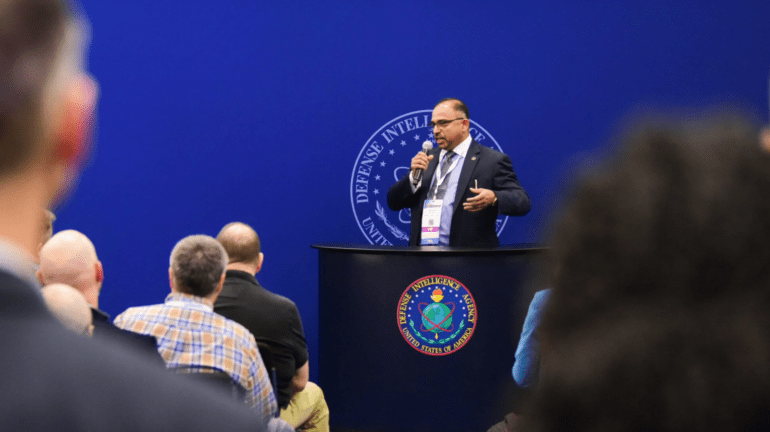TL;DR:
- DIA unveils a comprehensive AI strategy focused on ethical AI principles.
- The strategy emphasizes the creation of a centralized governance model, the AI Community of Interest.
- DIA aims to standardize AI development and integration, adopting a maturity framework.
- Collaboration with Intelligence Community agencies to identify gaps and bridge them through the strategy.
- DIA’s AI strategy aligns with the DoD’s broader efforts to accelerate AI capabilities.
- The White House’s executive order on AI safety serves as a catalyst for AI integration in the DoD.
- DIA’s Chief Information Officer outlines a strategy for 2024-2028, with a focus on modernizing JWICS and enhancing security.
Main AI News:
The Defense Intelligence Agency (DIA) has embarked on a transformative journey towards implementing a comprehensive artificial intelligence (AI) strategy, aligning itself with the ethical principles set forth by the Department of Defense. Ramesh Menon, DIA’s Chief Technology Officer, announced this development at the recent DoD Intelligence Information System (DoDIIS) conference, highlighting the agency’s commitment to ethical AI practices and standardization across the defense intelligence landscape.
The strategy, officially endorsed by DIA Director Gen. Scott Berrier, focuses on creating a centralized governance model referred to as the “AI Community of Interest.” This model aims to streamline the development and standardization of AI technologies throughout the defense intelligence enterprise. Menon emphasized the importance of a maturity framework that will enable agencies to be assessed on a consistent scale across various facets of AI implementation. The ultimate goal, as Menon succinctly put it, is to “operationalize AI.”
While specific details regarding the AI strategy are yet to be publicly disclosed, DIA has collaborated with other Intelligence Community agencies to identify gaps that need addressing. These gaps span different aspects, including talent and skills development and the identification of essential platforms. The strategy will serve as a roadmap for the department, helping to bridge these gaps and standardize the integration of new capabilities.
DIA’s AI strategy follows the Department of Defense’s own AI strategy, released in November, aimed at accelerating the adoption of AI capabilities. This broader strategy acknowledges industry advancements in federated environments, decentralized data management, and the utilization of generative AI tools, such as large language models.
It is noteworthy that the impetus for AI integration within the DoD was driven by a White House executive order, hailed as a groundbreaking initiative for AI safety. This order directed the DoD to establish a pilot program to identify vulnerabilities in critical software and networks using AI while also striving to attract more AI talent to the department.
In parallel, DIA’s Chief Information Officer, Doug Cossa, unveiled the agency’s information strategy for the years 2024 to 2028. Key focus areas include the modernization of the Joint Worldwide Intelligence Communication System (JWICS), the government’s secure network for classified information. This modernization effort incorporates zero trust principles to enhance security without revealing specific details. Furthermore, the strategy aims to bolster the agency’s information technology workforce, increase international connectivity, and establish a robust pipeline for software-enabled capabilities.
Conclusion:
DIA’s strategic commitment to AI and the establishment of a centralized governance model signal a significant move towards harnessing AI’s potential in defense intelligence. This development underscores the growing importance of AI and ethical AI practices in the defense market, with implications for both technology providers and defense agencies seeking to stay at the forefront of innovation and security.

